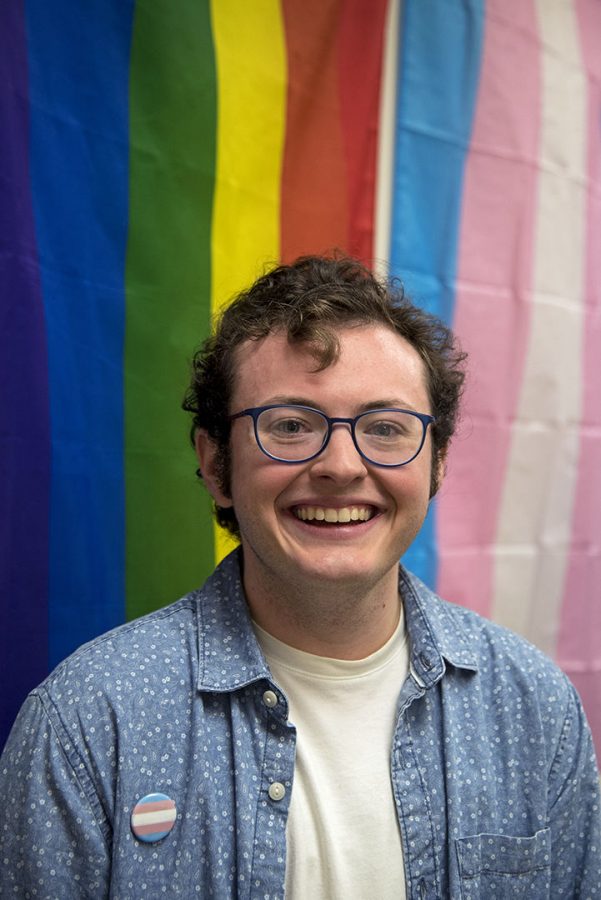Queer Student Union revamps for fall semester
August 28, 2017
SAFE SPACE
For many students, finding safe spaces for civil discourse and shared experiences is an important part of college and coming to terms with who they are.
With the changes made to Western Kentucky University’s Queer Student Union, WKU is more prepared to address those needs in the LGBTQ community.
Senior Jeremy McFarland is in his first semester serving as a student coordinator of QSU. He described the organization as a group for all queer, allied and questioning students, meaning it’s open to students who support LGBT+ people as well as those who consider themselves queer or who are still unsure of or figuring out their orientation and identity—referred to as “questioning”.
The organization is good for networking and making connections with others in the community, as well as learning about queer history and speaking freely without judgment or discrimination, McFarland explained.
“I think it’s important because there’s a massive need for students on campus that have the support of each other … that’s a really isolating feeling, when you feel like your institution doesn’t have resources to help you,” McFarland said.
He went on to explain QSU is working to expand its services to include niches for minorities whose voices often go unheard within the queer community or within society as a whole.
One new subset of QSU is the Transgender and Nonbinary Group, known as TNB. It’s a confidential group for students who are transgender, nonbinary or questioning gender identity, and students interested in joining can email [email protected]. The identities of students involved and the times and locations of meetings are not disclosed except by direct contact with the organization in order to protect members’ privacy.
QSU is a campus organization for students who identify as queer, a blanket term that encompasses lesbian, gay, bisexual, transgender and other sexual identifications.
Through the organization, members can receive access to a number of resources, including an LGBTQIA+ , or lesbian, gay, bisexual, transgender, questioning, intersex, asexual, ally, support group that meets weekly. There is also a subgroup specifically designed for transgender and gender non-conforming people, where they can discuss issues they face as a result of their gender identity and expression and advocate for rights and accommodations.
WKU’s Counseling and Testing Center is linked with the Queer Student Union, providing counseling to LGBT+ students and offering off-campus therapist referrals when necessary, in addition to referring transgender students to medical specialists for treatments like hormone replacement therapy, a process by which hormone balance is altered to match the gender identity of the patient.
WKU’s Transgender Non-Binary Student Group has created resources for queer students, specifically geared toward transgender people, including a list of all-gender bathrooms and an explanation of Title IX’s application to the queer community. The group worked with the ID center and the IT division to allow name changes on student IDs and TopperMail accounts for those who request them.
Groups for people of color, people of faith, and people on the ace, or asexual, spectrum are currently in the works, with more coming soon. Students are welcome to suggest and create more subgroups if they see a need, and anyone who wishes to join QSU is encouraged to email [email protected] or come to a meeting. The organization meets weekly on Mondays at 3 p.m. in Downing Student Union, room 2113, and no sign-up is required to attend.
Changes are in place to make resources and peer support more accessible to queer people in the WKU community, but as the Queer Student Union grows to meet the needs of the student population, its mission stays the same.
“The goal is to include everyone,” McFarland said. “It’s really to educate the campus and community on the needs and humanity of queer students.”
Reporter Sarah Yaacoub can be reached at 270-745-6291 and [email protected]. Follow her on Twitter at @sarahyaacoub1.




















![Megan Inman of Tennessee cries after embracing Drag performer and transgender advocate Jasmine St. James at the 9th Annual WKU Housing and Residence Life Drag Show at Knicely Conference Center on April 4, 2024. “[The community] was so warm and welcoming when I came out, if it wasn’t for the queens I wouldn’t be here,” Inman said.](https://wkuherald.com/wp-content/uploads/2024/04/smith_von_drag_3-600x419.jpg)


